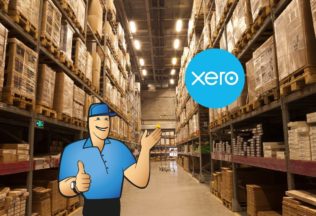10 Things You Need to Know Before Buying Manufacturing Software
As the New Year begins, many businesses are planning expenditures for the entire year. For many of these companies, those plans include equipment, staffing, material, and a host of other useful things that will allow them to more effectively manage their business.
But for some companies, especially those in the small to medium sized category, one thing on their shopping list is manufacturing software.

You can also listen to this article
It is inevitable that for many companies experiencing growth, there comes a point when spreadsheets, Google Docs, and an ad hoc collection of other software no longer works well for planning and scheduling or for managing finance and inventory. As growth accelerates, managing these disparate sources can impede efficiency and lead to costly errors or missed deliveries.
Must Haves
Regardless of other features and considerations, there are certain “Must Haves” for manufacturing software to be useful. These include:
- Strong Materials Planning and Costing – A software must allow for scheduling, forecasting and materials plans. There should also be robust reporting to allow decision makers to act on what they see. Scheduling should be dynamic and have multi-level BOM capability.
- Shop Floor Management/Control – This database allows control of shop activity from capacity to staffing to work in progress.
- Inventory/Supply Chain – For many SMBs, inventory is critical in controlling cash flow. No one wants to have too little to complete orders but too much can bind up valuable cash required for purchasing. Inventory control should allow for low inventory alerts, lot tracking, shipment planning and a host of other features.
Manufacturing Software – a Long List to Choose From
With the power of the internet and the proliferation of cloud computing and Software as a Service (SaaS), there are many options to choose from when selecting manufacturing software. As a small or medium sized business, this number of options can be confusing. In-house skillsets required to fully understand the options may not be available as many staff members in smaller operations perform many numerous tasks.
But manufacturing software selection is critical for several reasons. First, it will be the engine that drives efficiency and ensures a company can control costs and meet deliveries. Secondly, it is a long-term investment that will become part of the company culture as the enterprise grows and the system matures. And third, selecting the wrong software can make worse the problems the software was supposed to solve.
Manufacturing Software – What to Know Upfront
But the choice doesn’t have to be one that includes high anxiety. With a little research, common sense and an understanding of your business, the list can be narrowed down to a few vendors that will fit an operation perfectly. Here are some of the key requirements to know before purchasing manufacturing software:
- Know Your Strategic Requirements – Some areas of small to medium businesses (SMBs) may need more automation or tracking than others depending on production strategy. While others want to automate everything possible to stay ahead of rapid growth. And companies considering software should develop their need for manufacturing software around their strategic plans for business growth and market penetration. If you know you are adding new production lines or service offerings, this should be included in consideration of required functionality even if they may not begin production until some point in the future.
- Know Your Functionality Needs – No one wants to overpay for an expensive contract and unnecessary functionality. In the beginning stages of selection, an honest assessment of current needs will help. Understanding needs and ensuring those needs are met with the right contract will reduce unnecessary costs associated with too much or too little functionality. Most agile software providers offer plans that allow upgrading for added functionality and some even offer functionality a’ la carte.
- Determine the Impact on Staff – Manufacturing software isn’t just a computer program. It is a purchase that will become an integral part of a company culture. Long learning curves can have a negative impact on that culture and result in less efficient practices instead of good ones. By establishing these effects up front, new programs can be vetted for impact to ensure success after purchase.
- Try Before You Buy – Many vendors offer full feature trials that allow you to use your data in a real-world environment. This can be an invaluable tool to determine the fit, as well as to discover functionality you hadn’t considered but fits for a stronger value add.
- Negative vs Positive Customization – Customization with manufacturing software can either help or inhibit a company.
-
- Negative Customization: If the customization required results in long learning curves, extensive training, added cost, or a lengthy “debugging” process, it can drain resources and be difficult to use throughout its life cycle.
- Positive Customization: If the customization is available in an intuitive interface that can be performed by any staff member with no effect on functionality, or one that creates improved functionality, then this agile flexibility will have a strong positive effect.
- Speak with Existing Clients – If possible, speak with other companies who have used the software. Most vendors can supply references of real-world users who have had success with the software. This gives companies considering adoption the ability to ask questions about bugs, customer service, learning curves and other use case scenarios.
- Seek Professional Advice – Most SMBs don’t have the in-house skillsets required for a deep code-level evaluation of manufacturing software. And while most vendors in this space today offer quick and simple export of data into their platform, a reputable ERP expert can lend advice and help point out things that may not have been considered.
- Data Security – In a world where data hacks and breaches are common, it is good practice to vet the vendor for security. Good vendors will disclose protocols, certifications and safeguards designed to protect their client’s data. It is always good to know this beforehand.
- Integration – Every company has other software programs that are vital to its operation. These may be specialty programs that do not impact manufacturing software. But, most good platforms will at least have the ability to integrate with programs such as Xero, QuickBooks and others. These tie-ins can greatly enhance the effectiveness and utility of the manufacturing software and improve a company’s operations by eliminating another set of dual steps when integration is required.
- Updates – While there are some benefits to on-site hosting, most cloud-based service providers can offer a tremendous advantage by comparison. With cloud-based systems, a company is always using the latest version and updates are continuous. Choosing a hosted on-site option may open a company up to expensive upgrades or to degraded service levels when upgrades are not done.
There are many options for manufacturing on the market today. And while the process of choosing a new software can be daunting, it doesn’t have to be. With research, planning, accurate assessment of needs and reliance upon staff, the best options will become apparent to point you to the right provider.




